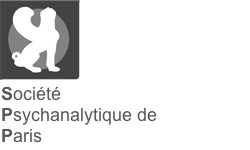|
Resumen:
|
This article sets out to challenge the interpretation of Freud's views on the origins of the meaning of language according to which meaning always originates from an act of naming. In Freud's terms, word‐presentations would originally denote object‐ or thing‐presentations and gain meaning through this reference. This interpretation claims that this view was already expressed in Freud's On Aphasia (1891) and influenced all his later theory of language. To oppose this claim, three conceptions proposed by Freud are discussed that strongly suggest the participation of language in the construction of the field of objects: a metapsychological hypothesis (the concepts of word‐, thing‐, and object‐presentation), the explanation of a psychopathological phenomenon (the genesis of a fetishistic object‐choice), and a concept concerning the foundations of the psychoanalytic method of dream interpretation (secondary elaboration). As a conclusion, it is argued that Freud's early views in On Aphasia (1891) can be alternatively understood such as to allow for a different view of language and its relationship with objects.
|





